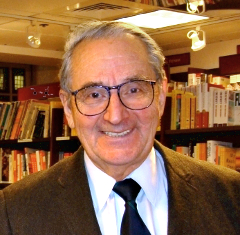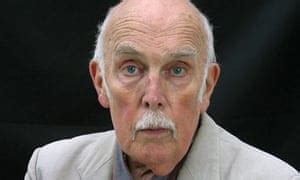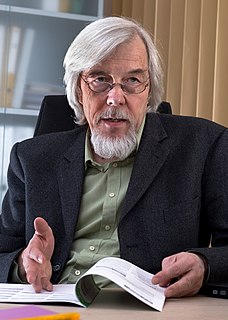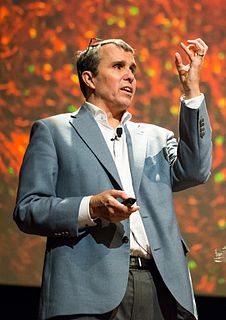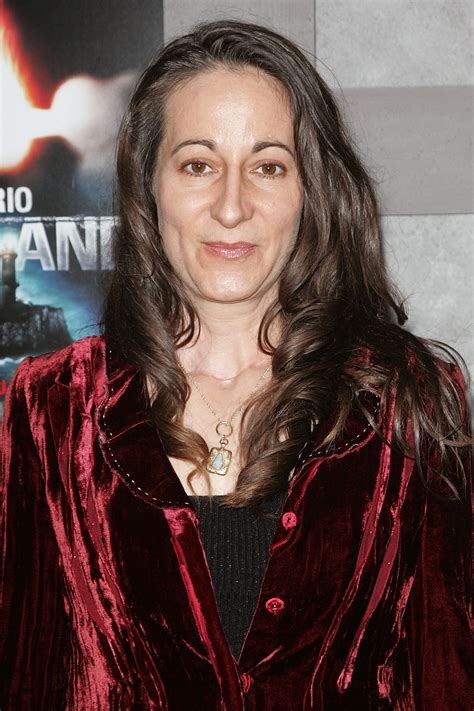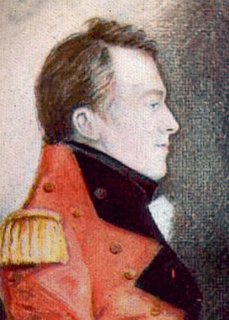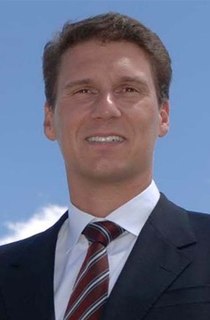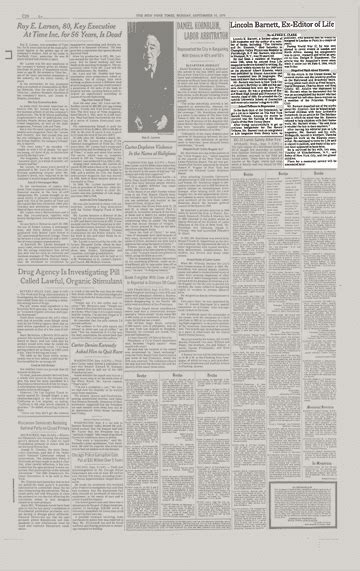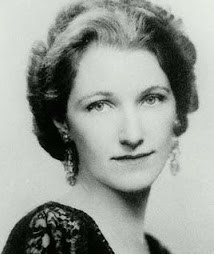Top 1200 Science And Society Quotes & Sayings - Page 2
Explore popular Science And Society quotes.
Last updated on November 21, 2024.
In the years since man unlocked the power stored up within the atom, the world has made progress, halting, but effective, toward bringing that power under human control. The challenge may be our salvation. As we begin to master the destructive potentialities of modern science, we move toward a new era in which science can fulfill its creative promise and help bring into existence the happiest society the world has ever known.
Because a fact seems strange to you, you conclude that it is not one. ... All science, however, commences by being strange. Science is successive. It goes from one wonder to another. It mounts by a ladder. The science of to-day would seem extravagant to the science of a former time. Ptolemy would believe Newton mad.
Obviously, there's all sorts of life happening all around us, but on a human level, I'm just interested in people making informed decisions. You know, increasing their awareness. And also, trying to encourage people to be more fascinated with information and science and knowledge of all sorts, instead of, you know, it's a generalization, but the encouragement by society, the reflections that society gives us, which is media, television, art - anything, really.
The Adlerians, in the name of "individual psychology," take the side of society against the individual. ... Adler's later thought succumbs to the worst of his earlier banalization. It is conventional, practical, and moralistic. "Our science ... is based on common sense." Common sense, the half-truths of a deceitful society, is honored as the honest truths of a frank world.
When people think science and cooking, they have no idea that it's not correctly expressed. We're actually applying the scientific method. People think chemistry and physics are science, but the scientific method is something else.... It's the science that the world of cooking generates: science of butter; science of the croissant.
Science fiction is fantasy about issues of science. Science fiction is a subset of fantasy. Fantasy predated it by several millennia. The '30s to the '50s were the golden age of science fiction - this was because, to a large degree, it was at this point that technology and science had exposed its potential without revealing the limitations.
In an echo of earlier times, the climate change prophets have in recent years tried to silence counter views and suppress dissent. August members of the Royal Society, a body once noted for its cultivation of debate in science, are now leaders of the 'science is settled' camp: the only debate they consider to be legitimate is about choice among the different forms of the centralized action they believe is required to deal with the problems they foresee.
All Science is necessarily prophetic, so truly so, that the power of prophecy is the test, the infallible criterion, by which any presumed Science is ascertained to be actually & verily science. The Ptolemaic Astronomy was barely able to prognosticate a lunar eclipse; with Kepler and Newton came Science and Prophecy.
Many of us who read the literature of social science as laymen are conscious of being admitted at a door which bears the watchword "scientific objectivity" and of emerging at another door which looks out upon a variety of projects for changing, renovating, or revolutionizing society. In consequence, we feel the need of a more explicit account of how the student of society passes from facts to values or statements of policy.
Social Science, is not a 'gay science' but rueful, which finds the secret of this universe in 'supply and demand' and reduces the duty of human governors to that of letting men alone. Not a 'gay science', no, a dreary, desolate, and indeed quite abject and distressing one; what we might call, the dismal science
There's just so many facets, I think, of the ignorance in our society that have to be corrected if we're really going to have a democratic society and a society that is just and that respects all of the members of this society regardless of who they are, what color they may be, what sexual orientation that they have or what gender, you know, they happen to be.
Science and religion...are friends, not foes, in the common quest for knowledge. Some people may find this surprising, for there's a feeling throughout our society that religious belief is outmoded, or downright impossible, in a scientific age. I don't agree. In fact, I'd go so far as to say that if people in this so-called 'scientific age' knew a bit more about science than many of them actually do, they'd find it easier to share my views.
Science is the key to our future, and if you don’t believe in science, then you’re holding everybody back. And it’s fine if you as an adult want to run around pretending or claiming that you don’t believe in evolution, but if we educate a generation of people who don’t believe in science, that’s a recipe for disaster. We talk about the Internet. That comes from science. Weather forecasting. That comes from science. The main idea in all of biology is evolution. To not teach it to our young people is wrong.
Mathematics has two faces: it is the rigorous science of Euclid, but it is also something else. Mathematics presented in the Euclidean way appears as a systematic, deductive science; but mathematics in the making appears as an experimental, inductive science. Both aspects are as old as the science of mathematics itself.
The whole point of science is that most of it is uncertain. That's why science is exciting--because we don't know. Science is all about things we don't understand. The public, of course, imagines science is just a set of facts. But it's not. Science is a process of exploring, which is always partial. We explore, and we find out things that we understand. We find out things we thought we understood were wrong. That's how it makes progress.
For all the advances in technology, science and communications, there are signs that we are failing in areas where it matters most: our personal relationships and society in general. The atomisation of society evidenced by the startling increase in recent decades of single person households and the identification of loneliness and isolation as one of our most pressing new social problems, should give us cause for concern.
Imagine a society that subjects people to conditions that make them terribly unhappy, then gives them the drugs to take away their unhappiness. Science fiction? It is already happening to some extent in our own society... Instead of removing the conditions that make people depressed, modern society gives them antidepressant drugs. In effect, antidepressants are a means of modifying an individual's internal state in such a way as to enable him to tolerate social conditions that he would otherwise find intolerable.
I wanted to be a scientist. My undergraduate degree is in biology, and I really did think I might go off and be some kind of a lady Darwin someplace. It turned out that I'm really awful at science and that I have no gift for actually doing science myself. But I'm very interested in others who practice science and in the stories of science.
We are persons whose bodies can be objectively studied according to the impersonal laws of physics but whose minds are subjectively experienced in ways science has not yet been able to fathom. In short, by radically seperating science from religion, we are not merely segregating two human institutions; we are fragmenting ourselves as individuals and as a society in ways that lead to deep, unresolved conflicts in terms of our view of the world, our values, and our way of life.



